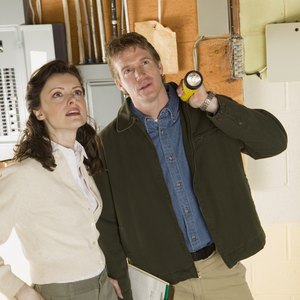
Mold can be an insidious intruder growing inside your home, leaving you unaware of it's presence. That's why so many homebuyers are wary of mold issues, and insist upon having a licensed or certified mold inspector test for its presence. Mold can cause serious health problems ranging from itching eyes, allergic reactions, asthma attacks and even permanent lung damage. It's important to find out if mold is growing inside the home you're planning to buy -- prior to closing.
Mold Hazards
Mold thrives in dark and moist environments, especially in the duct work of central heating and air units. It reproduces by tiny spores, which are invisible to the naked eye. Some people have extreme sensitivities to mold, and can have very serious reactions, such as asthma attacks or allergic reactions that can be life-threatening. In extreme cases of mold growth, the cost of mold remediation can be several thousand dollars.
Find an Inspector
Several licensed home inspectors also specialize in mold abatement and detection, but finding a mold inspector is as easy as opening your phone book. Although there are many organizations that provide mold certification and training, it's important to find an inspector that follows the Environmental Protection Agency, or EPA, guidelines when it comes to detection and removal. Ask your inspector where and how they will test for mold, for example, if they do air testing, check the duct work, hard-to-reach places and other various surfaces.
Inspection Contingency
Most real estate purchase and sale contracts allow for a specified time period during which you can not only have the home structurally inspected, but also checked for mold as well. During this time period, either your home inspector or a separate mold inspector may perform testing to establish the existence of abnormal levels of different kinds of spores. Typically this section of the contract is called a "contingency," and allows a buyer to back out of the deal penalty-free if high mold levels are found.
Written Notification
Once you have decided to back out of the real estate contract due to abnormal mold levels, you will most likely need to notify the seller of the property in writing. Your real estate agent will have an inspection response form that is suitable for written notification. If your contract included an inspection contingency and you are within your designated time frame for providing notification, you should be entitled to a full refund of your earnest money.
References
- New York Times: Your Home - The Dangers of Mold in Homes
- Black Mold Guide: Mold Certification Training - Hiring a Qualified Mold Inspector
- Harper, 2019.
- Howard, 2019.
- FEMA. "National Flood Insurance Program Fact Sheet." Accessed Jan. 23, 2020.
- FEMA. "The BIG Cost of Flooding." Accessed Jan. 23, 2020.
Writer Bio
Meribeth Phipps has been a real estate broker since 2000, specializing in residential new home sales. She holds a bachelor's degree in business and marketing.

